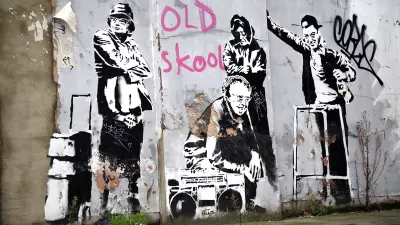A New York City micro-unit developer had hoped to sell 550 micro-condos to millennials and empty nesters. The project is being redesigned to reduce the number of micro-condos and add a hotel.
Inspired by the 2013 winner of a New York City micro-apartment competition spearheaded by former Mayor Michael Bloomberg, New York City-based Novel Creative Development LLC announced plans to build "Ivy Lofts, the first 'micro-unit' condominium project in Houston," reported Paul Takahashi, real estate reporter for the Houston Business Journal, in November 2015.
Unlike micro-apartments that are typically rented, purchasing the micro-condos proved to be a challenge, particularly for millennials.
"[T]he new developer expected to sell all 550 units before breaking ground in June 2016," reported Takahashi on July 25. "However, four months after opening an on-site sales center, Ivy Lofts had secured contracts from only 68 prospective buyers, said Wen Pin Tsai, Novel Creative Development’s vice president of business development." That's just over 12 percent of the units.
Just to clarify, the proposed 24-story building [see slideshow] proposed on 1.4 acres in EaDo, Houston's up-and-coming East Downtown neighborhood, has yet to break ground.
According to a July 28 phone call with Jared Anthony, a public relations representative for Ivy Lofts, a major challenge for millennials was financing, which has since been simplified.
He added that the number of micro-condos, which range in size from 330 sq.ft. to 1,000 sq. ft., will be reduced to 300 to 350 units, and will occupy one of the two towers. The second tower will be designed as a conventional hotel.
The developer hopes to break ground in January or February, 2017.
Hat tip to Kim Slowey. See her summary, composed of a brief and insight, in Construction Dive.
FULL STORY: Micro-unit condo project backed by New Yorkers shifts direction in Houston

Alabama: Trump Terminates Settlements for Black Communities Harmed By Raw Sewage
Trump deemed the landmark civil rights agreement “illegal DEI and environmental justice policy.”

Study: Maui’s Plan to Convert Vacation Rentals to Long-Term Housing Could Cause Nearly $1 Billion Economic Loss
The plan would reduce visitor accommodation by 25% resulting in 1,900 jobs lost.

Planetizen Federal Action Tracker
A weekly monitor of how Trump’s orders and actions are impacting planners and planning in America.

Waymo Gets Permission to Map SF’s Market Street
If allowed to operate on the traffic-restricted street, Waymo’s autonomous taxis would have a leg up over ride-hailing competitors — and counter the city’s efforts to grow bike and pedestrian on the thoroughfare.

Parklet Symposium Highlights the Success of Shared Spaces
Parklets got a boost during the Covid-19 pandemic, when the concept was translated to outdoor dining programs that offered restaurants a lifeline during the shutdown.

Federal Homelessness Agency Places Entire Staff on Leave
The U.S. Interagency Council on Homelessness is the only federal agency dedicated to preventing and ending homelessness.
Urban Design for Planners 1: Software Tools
This six-course series explores essential urban design concepts using open source software and equips planners with the tools they need to participate fully in the urban design process.
Planning for Universal Design
Learn the tools for implementing Universal Design in planning regulations.
Caltrans
Smith Gee Studio
Institute for Housing and Urban Development Studies (IHS)
City of Grandview
Harvard GSD Executive Education
Toledo-Lucas County Plan Commissions
Salt Lake City
NYU Wagner Graduate School of Public Service





























